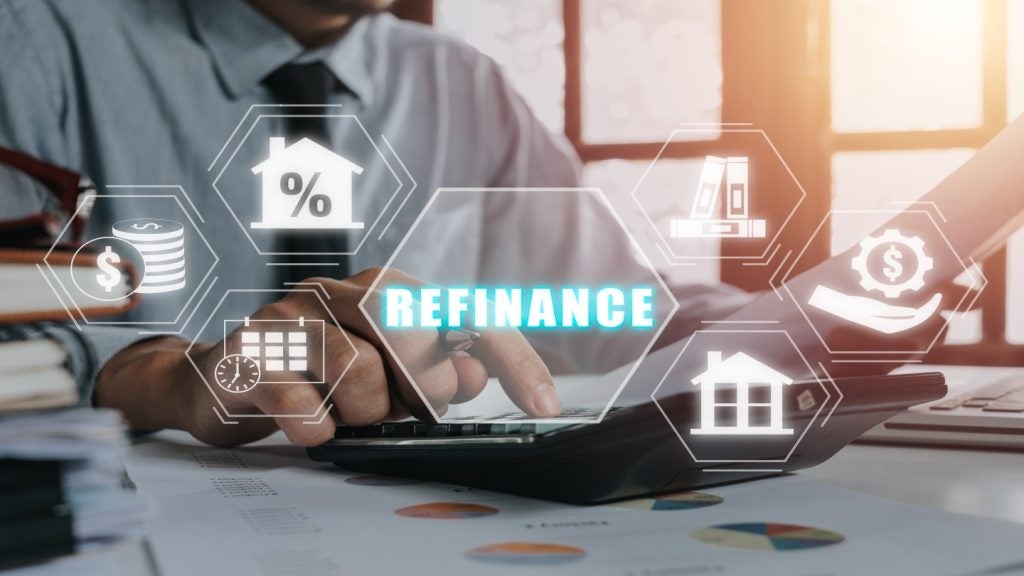
According to the IFO Institute’s survey, which covers all companies operating in the leasing sector, the volume of new leasing and hire purchase business acquired in Germany in 2015 was 59bn, of which 52.2bn was leasing.
This represented an increase of 3% on the figure for 2014, down on the 6% growth experienced between 2013 and 2014. Equipment leasing rose to 51bn last year from 49bn in 2014, an increase of 4%.
There was also a modest rise in the penetration rate for leasing equipment, which stood at 22.9% last year compared to 22.7% in 2014 and 22.3% in 2013. The leasing industry’s share of aggregate investment in Germany (the overall leasing penetration rate) went up to 15.3% in 2015 from 15% in 2014.
Just over half of outside financed investment in Germany is realised through leasing, a figure that has remained relatively stable since 2012. There’s been more movement in the breakdown of the market between captives, bank-owned leasing companies and independents, with the market share of captives having increased over the past few years in direct proportion to the percentage of the market controlled by bank-owned leasing companies.
Road vehicles once again constituted the most important segment of the leasing market in 2015 – passenger cars and commercial vehicles accounted for 74% of all new equipment leased last year. The second-largest category of capital goods in the equipment leasing sector was production machinery, ahead of office equipment and IT systems. The two largest sectors saw revenues rise by 6% and 4% respectively, while office equipment and IT systems fell slightly.
The breakdown by customer type shows that services account for 37% of the market (up 4% from last year) followed by manufacturing at 19%, a 5% rise on the previous 12 months.
How well do you really know your competitors?
Access the most comprehensive Company Profiles on the market, powered by GlobalData. Save hours of research. Gain competitive edge.

Thank you!
Your download email will arrive shortly
Not ready to buy yet? Download a free sample
We are confident about the unique quality of our Company Profiles. However, we want you to make the most beneficial decision for your business, so we offer a free sample that you can download by submitting the below form
By GlobalDataMost new lease business in Germany is acquired through agreements concluded with manufacturers and dealers – around 55% of leased-equipment business was acquired through vendor lessors last year.
Leasing is firmly rooted in the German Mittelstand (small and medium-sized enterprises) – more than 85% of leasing customers in Germany belong to this sector of the economy, explains Horst Fittler, secretary general of the German Leasing Association (BDL – Bundesverband Deutscher Leasing-Unternehmen).
"In light of the considerably dampened investment climate, the leasing industry is satisfied with the new business recorded in 2015," he says. "The driver of this growth was vehicle leasing, with sales of passenger cars and commercial vehicles up by 6%, while the second-largest segment – the leasing of machinery – grew by 4%."
The increase in demand for machinery was in double figures at the beginning of the year, but that growth rate tailed off as the year wore on and new orders for machinery and plant dwindled.
The level of new business acquired through the leasing of computers, servers and IT equipment has again been disappointing, adds Fittler.
"Demand was already weakening in 2014 and last year saw a further decline (by 2%). IT investments are a seismograph of the prevailing economic mood since experience tells us that in times of uncertainty, companies will first of all put the acquisition of new IT equipment on hold. The real estate segment has also been losing ground – new business acquired through the leasing of offices, business premises and production facilities fell by 29% to 1.21bn."
Although economic data and developments give cause for optimism, Deutsche Leasing Group CEO Kai Ostermann acknowledges that fragile confidence has impacted his company in a number of ways:
Low interest rates as the ‘new normal’ sometimes have a short-term stimulating effect on the economy but create increased uncertainty and risk in the medium to long term;
The low interest rate causes customers to use their own resources for investments if they invest at all (willingness to invest has stabilised, but it is still low compared with the period before the global financial crisis);
The economic situation in emerging countries has become distinctly more uncertain in recent years, with the decline in commodity prices, credit cycles and political unrest curbing confidence in expanding within these countries.
When asked whether he expects the market to grow this year compared to 2015, Ostermann says it should be noted that the German SME segment is showing robust growth. "The business climate is perceived as positive for the next few months and production is set to be extended."
Deutsche Leasing is convinced that SMEs are increasingly looking for financial services that are easy to access, Ostermann continues.
"Therefore, we started to systematically develop small-ticket business together with the savings banks. In this segment, we were able to achieve an increase of 11% over the past financial year and we intend to continue along this path in order to leverage additional potential with the savings banks in business with small corporate customers, as well as industrial customers. The focus is on streamlined and fast decision-making and handling processes, which will help the savings bank to work efficiently and assist the customer who needs a fast and reliable financing solution."
Another major topic is international business with savings banks. "We’re convinced that the savings banks could benefit even further on an international level," Ostermann says. "We offer the savings banks access to a team of experts for these corporate customers active overseas, who will advise savings bank customers within local institutions together with their own corporate customer adviser; are familiar with the legal frameworks and specific cultural characteristics within the target country; and are able to offer or arrange additional services through collaborations within the investment country, for example, help in opening accounts or contact with public officials."
Over the last financial year, Deutsche Leasing has also developed country strategies and market development concepts for and with the savings banks. "The reinforcement of our long-standing cooperation with Helaba [the commercial bank Landesbank Hessen-Thüringen] – which is now focusing much more on international business – is also geared towards the growing needs of the savings banks and their customers for international investment support," adds Ostermann, who says the company will continue to work on regulatory requirements this year.
"Significant investments are required in systems and data management in order to comply with current requirements and resources need to be committed to this. We’re paying more attention to ensuring our information technology and processes are designed to be future-proof and we’re investing in the development of additional markets and customer groups."
Jurgen Mossakowski, CEO at CHG Meridian says business in Germany has risen by more than the central European average and refers to the potential of new products in the fields of IT (cloud services), health care and industry.
There is a trend in Germany towards combining system integration and the leasing product on the technology side and a higher level of digitalisation in both the origination of business and the processing of transactions, explains Elmar Lukas, managing director, GE Capital Equipment Financing Germany.
"The leasing industry continued to experience regulation and consolidation last year and the announcement of the IFRS accounting standards might potentially impact the way leasing will be seen in the future," he adds, a point taken up by Kai-Otto Landwehr, head of commercial finance at Siemens Financial Services Germany.
Landwehr says: "The new accounting standard IFRS 16 published in January 2016 by the International Accounting Standards Board requires companies to include leasing commitments from operating leases in their balance sheets from 2019 onwards. This will have an impact on accounting and reporting procedures and will increase transparency on companies’ lease assets and liabilities."
In addition to the new IFRS standard, the German Federal Ministry of Justice published a draft law on insolvency proceedings in March 2015 which promises substantial relief for leasing firms. The new law decreases business risks for lessors, as the framework conditions for payment clawbacks through liquidators are set to be defined more clearly.
Based on current available leasing association data for 2015, Germany’s lease penetration and growth rates in 2015 were ahead of France, though somewhat behind the UK, adds Landwehr. "Research published in 2015 by Leaseurope illustrated the growing importance of leasing to SMEs in Germany, with an estimated 68% of SMEs now choosing leasing, compared to 36% in 2010."
He says there’s a growing demand for additional service offerings, particularly for assets that are not part of a client’s core business activities. "In cases like these, the inclusion of additional services such as installation, maintenance, service and training are also appreciated by customers."
The secretary general of the BDL agrees that customers expect more from leasing than financing investments. "Complementary service features which facilitate the use of vehicles or IT equipment are important arguments for leasing," Fittler notes. "Maintenance, inspection, around-the-clock hotlines and claims management are frequently requested by customers."
According to Landwehr, the indications are that leasing in the health care sector will continue to grow, with 30% of health care companies planning to expand their use of leasing as a financing tool. "Additionally, developments around the digitalisation and automation of production processes are expected particularly to drive demand for tailor-made financing solutions in the manufacturing sector in Germany."
When asked whether the German government has taken any direct or indirect action to support the lease finance industry, Fittler replies in the negative. In terms of what his organisation is doing to encourage growth in leasing activity in Germany, he says the BDL supports companies developing new markets and segments.
"The leasing industry sees considerable potential for growth in the ‘Industry 4.0’ project, which is revolutionising not just the production process, but the entire economy," he observes. "Many companies lack the kind of financing models that would allow them to hold down their capital expenditure to a minimum. The leasing industry can provide them with financing solutions tailored exactly to their requirements and must not be held back from doing so by poorly defined operating conditions."
Deloitte defines Industry 4.0 as referring to a further developmental stage in the organisation and management of the entire value chain process involved in manufacturing industry. According to recent research commissioned by Siemens Financial Services, businesses are reporting a strong need to upgrade or acquire new equipment in order to benefit fully from the developments around what is often referred to as the fourth industrial revolution.
According to BDL president Martin Mudersbach, the leasing industry is well placed to help with the realisation of these investments, because leasing companies employ engineers who have the know-how to assess new processes and business models, and, if necessary, to oversee their implementation.
However, Fittler acknowledges the investments required may prove to be quite a challenge. Companies will be investing not only in capital goods but also innovative processes, with so-called soft investments in intangible assets such as software and patents gaining in significance.
"To be in a position to help investors realise their investment ambitions, leasing companies need clearly defined framework conditions," he says. "Legislators will also have to make sure that appropriate technical standards and norms are in place. These are critical considerations for industry as a whole and clarity in this area would certainly make the remarketing process more straightforward for the leasing sector."
Fittler is cautious about the prospects for growth in 2016. "The economic forecasts offer little cause for optimism," he concludes. "Companies remain reticent about investing – investments in equipment are expected to increase by no more than 3% and levels of investment in Germany remain much too low. But this is the climate that the leasing sector lives in and there’s no evidence to suggest there will be a surge in growth any time soon. The increase in demand for equipment in 2016 will be in the region of 3-4%".







